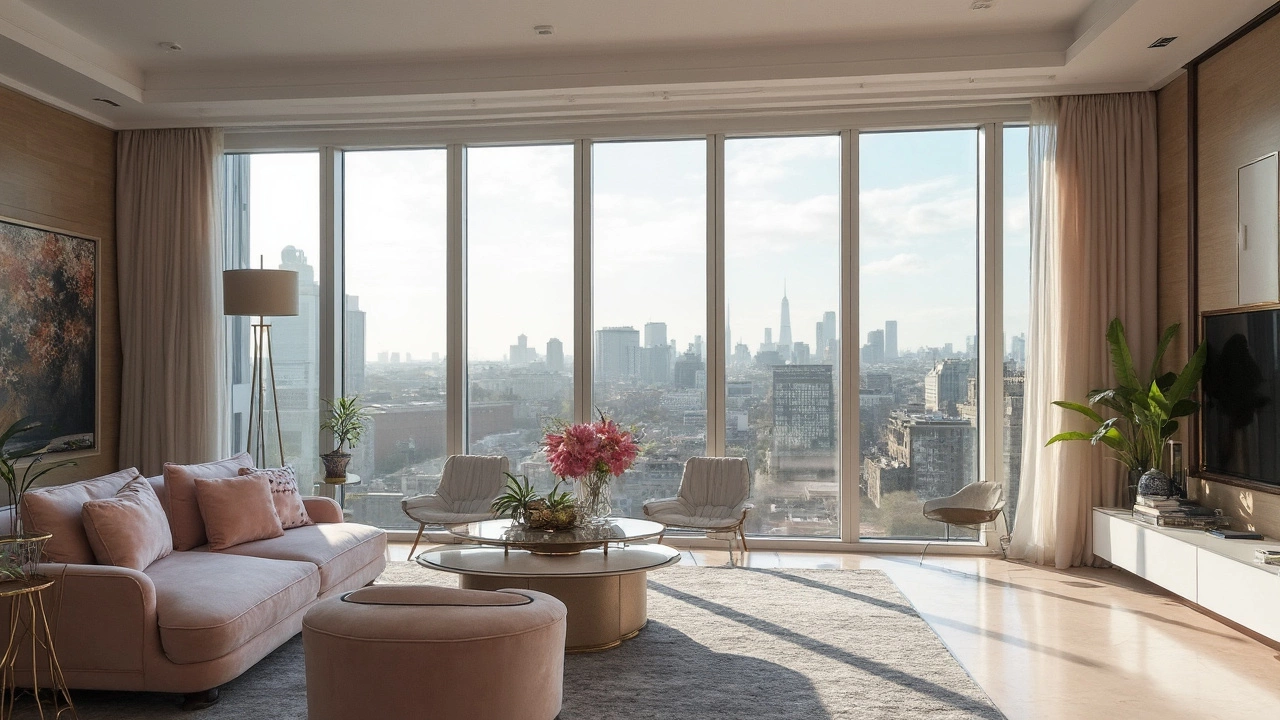Luxury housing isn’t just about a big price tag and a fancy address. It’s defined by unique features, services, and locations that go above the norm, setting these homes apart from regular apartments. This article breaks down what you really get when you pay for a luxury apartment, from jaw-dropping amenities to next-level comfort. Find out if the perks are worth the cost and what details to watch for if you’re in the market for something special. Get tips for spotting the true signs of luxury in today’s competitive real estate world.
Luxury Housing: How to Spot Real Estate That Truly Means Luxury
When you hear "luxury home," you probably picture a big house with fancy finishes and a great view. But there’s more to it than size and sparkle. Knowing the real markers of luxury helps you avoid the hype and find a property that actually delivers value.
Key Features of Luxury Homes
First off, location is everything. A luxury address often sits in a low‑density, high‑demand area—think waterfront, historic districts, or exclusive suburbs with top schools. The neighbourhood itself adds a premium.
Second, design matters. High‑end architects use premium materials like natural stone, hardwood, and custom‑crafted metalwork. Ceiling heights over 10 feet, open‑plan layouts, and floor‑to‑ceiling windows are common.
Third, technology and amenities set luxury apart. Smart home systems that control lighting, climate, and security from a phone are now standard. Look for built‑in sound systems, home theaters, wine cellars, and private gyms.
Fourth, privacy and space are non‑negotiable. Large lot sizes, gated entries, and long driveways give owners room to breathe. Even for city condos, a private balcony or rooftop garden counts.
Finally, price tells a story. In the UK, a property priced well above the local median—often three to five times higher—signals a luxury tier. But price alone isn’t enough; the features listed above must back it up.
Buying Tips for Luxury Properties
Start with a clear budget. Luxury homes can carry hidden costs like higher council tax, maintenance fees, and insurance for unique features. Add a buffer for those extras.
Work with an agent who specializes in high‑end markets. They know which listings are genuine and which are over‑hyped. An expert can also negotiate on things most buyers overlook, like inclusions of furniture or service contracts.
Do a thorough inspection. Premium materials can still have defects. Hire a surveyor experienced with luxury finishes to catch issues before you sign.
Check the future development plans around the property. A new highway or high‑rise could change the view and privacy you paid for.
Finally, think long term. Luxury homes often hold value better than mid‑range properties, especially in sought‑after locations. If you plan to rent it out, verify the local market can support high‑end rentals.
Luxury housing isn’t just about flash; it’s about quality, location, and lasting value. By focusing on the right features and doing smart homework, you can find a home that truly lives up to its premium price tag.
